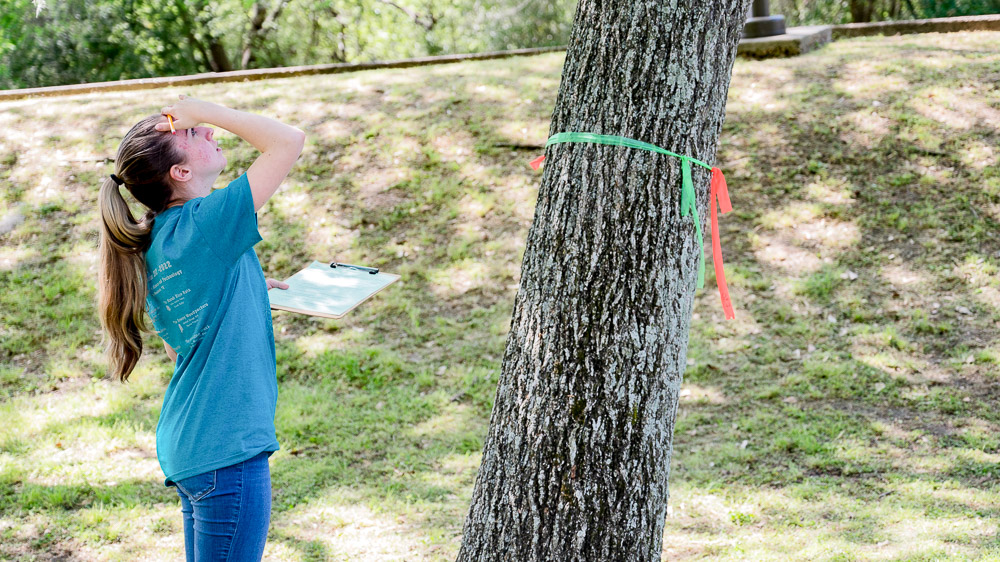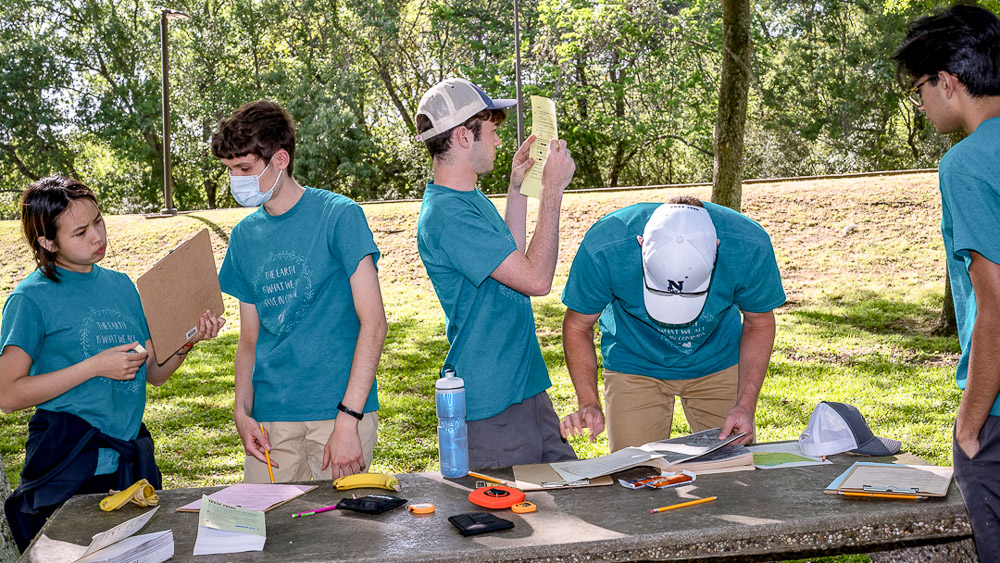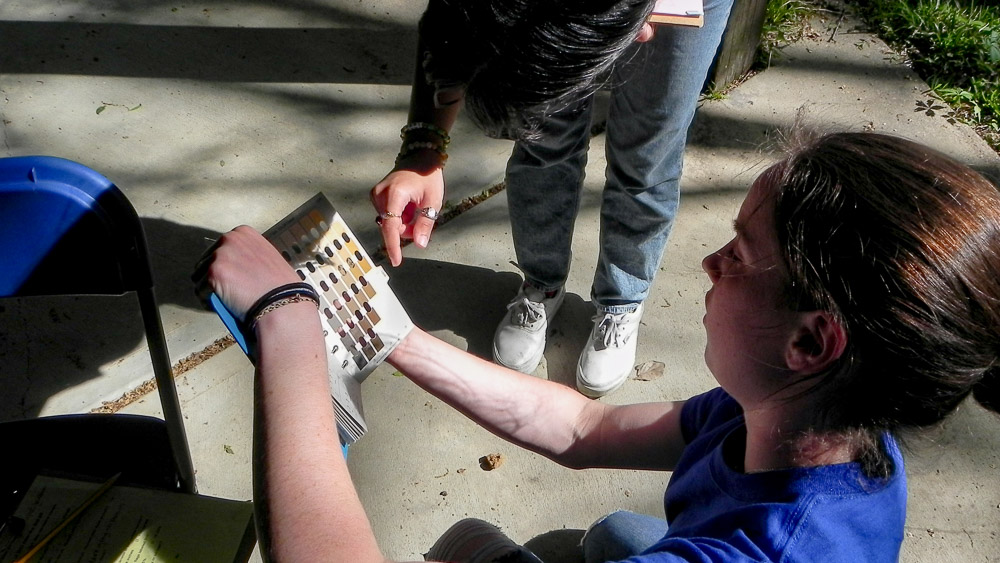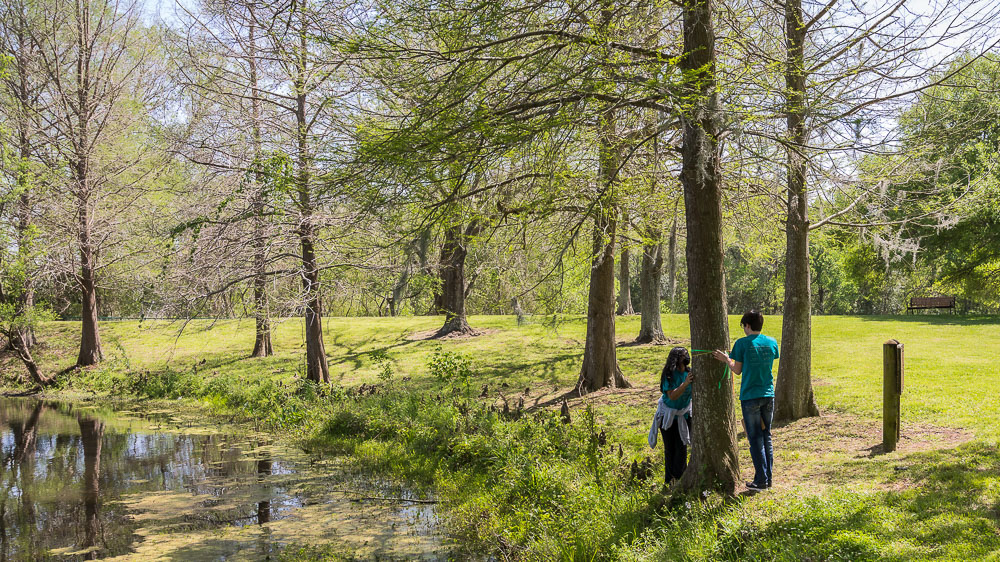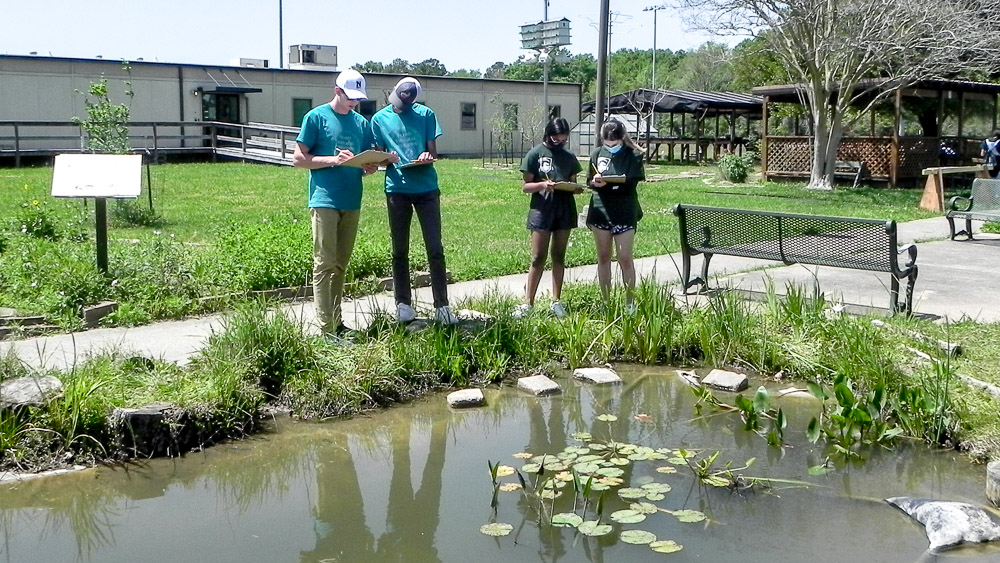
2022 Hybrid Texas Envirothon
Houston (Hybrid)
April 8 & 12, 2022
- 1st Place: South Texas ISD Science Academy, Grey Dragons
- 2nd Place: Richardson High School, Giant Spiderwort
- 3rd Place: Academy of Science and Technology, Alligator Gars
| Area of Study | Top Score | School, Team |
|---|---|---|
| Aquatics | 42/50 | South Texas ISD Science Academy, Grey Dragons Richardson High School, Giant Spiderwort |
| Forestry | 41/50 | Richardson High School, Giant Spiderwort |
| Soils | 32/43 | South Texas ISD Science Academy, Black Dragons Academy of Science and Technology, Alligator Gars |
| Wildlife | 40/48 | Carroll Senior High School, Dragonflies |
| Current Issue | 38/50 | South Texas ISD Science Academy, Grey Dragons Richardson High School, Giant Spiderwort Academy of Science and Technology, Alligator Gars Academy of Science and Technology, Marsh Rice Rats |
| Oral Presentation | 181/200 | South Texas ISD Science Academy, Grey Dragons |
-
Gold Sponsor: Eastman Chemical Company
- Hosts
- Armand Bayou Nature Center
- University of Houston-Clear Lake
- Academy of Science and Technology, The Woodlands
- Carroll Senior High School, Southlake
- South Texas ISD Science Academy, Mercedes
- Richardson High School, Richardson
Final ScoresPress ReleasePhoto Gallery
Waste to Resources
Waste of all kinds has the potential to affect the environment and our natural resources. From the water we drink to the land we live on, our decisions about how to manage waste impact our communities and the world around us. How can we make responsible choices about our waste? How can we manage our growth in a way that is sustainable? How can we turn our waste into resources?
Students will learn the concepts of different waste streams and the impacts of waste generation and disposal on natural resources and society. Students will also learn effective ways to manage waste regeneratively; as well as the social, economic, and political impacts of turning waste products and degraded lands into resources.
- Landfills and Hazardous Materials
- Describe different types of landfills and explain how they are regulated.
- Identify examples of hazardous materials and toxic substances and describe their proper disposal and handling.
- Reuse, Recycling and Waste Diversion
- Explain how the practices of reusing or recycling products conserves natural resources.
- Describe how recycled materials can be repurposed and further diverted from landfills.
- Explain how waste can be repurposed.
- Composting and Food Waste
- Describe composting processes and identify how composting supports waste diversion efforts.
- Explain how composting improves soil health and provide evidence for how composting supports water conservation efforts.
- Describe the problem of food waste and explain how it impacts the sustainability of the global food supply.
- Combustion with Energy Recovery (Waste-to-Energy)
- Identify examples of closed loop energy systems and facilities.
- Compare methods of carbon sequestration and describe their potential as an energy source.
- Human and Animal Waste Treatment
- Evaluate the differences between municipal waste treatment and home sewage treatment systems.
- Compare and contrast the methods of waste treatment for human waste versus animal waste.
- Describe the impacts to ground and surface waters when fecal waste is not effectively managed.
- Identify innovative methods for managing fecal waste to lessen the impact to natural resources.
- Brownfields and the Restoration of Degraded Lands
- Define a brownfield and identify the impacts of brownfield materials on soil and water quality.
- Explain methods for removing brownfield toxins and the role of federal and state entities in restoration.
- Compare “green” approaches to re-using degraded lands and identify the benefits these methods provide to local communities.
- Virtual Tour of a Recycling Center
- We’re Cooked | A three part series from NYT Opinion
2022 Teacher Workshop Presentations
| Presentation | Download |
|---|---|
|
WATCH: Brownfields and the Restoration of Degraded Lands Additional resources: |
|
|
WATCH: Landfills and Hazardous Materials |
|
|
Combustion with Energy Recovery |
|
|
WATCH: Reuse, Recycling and Waste Diversion |
|
|
WATCH: Resource Extraction from Human and Animal Waste |
|
|
WATCH: Waste Water Treatment |







